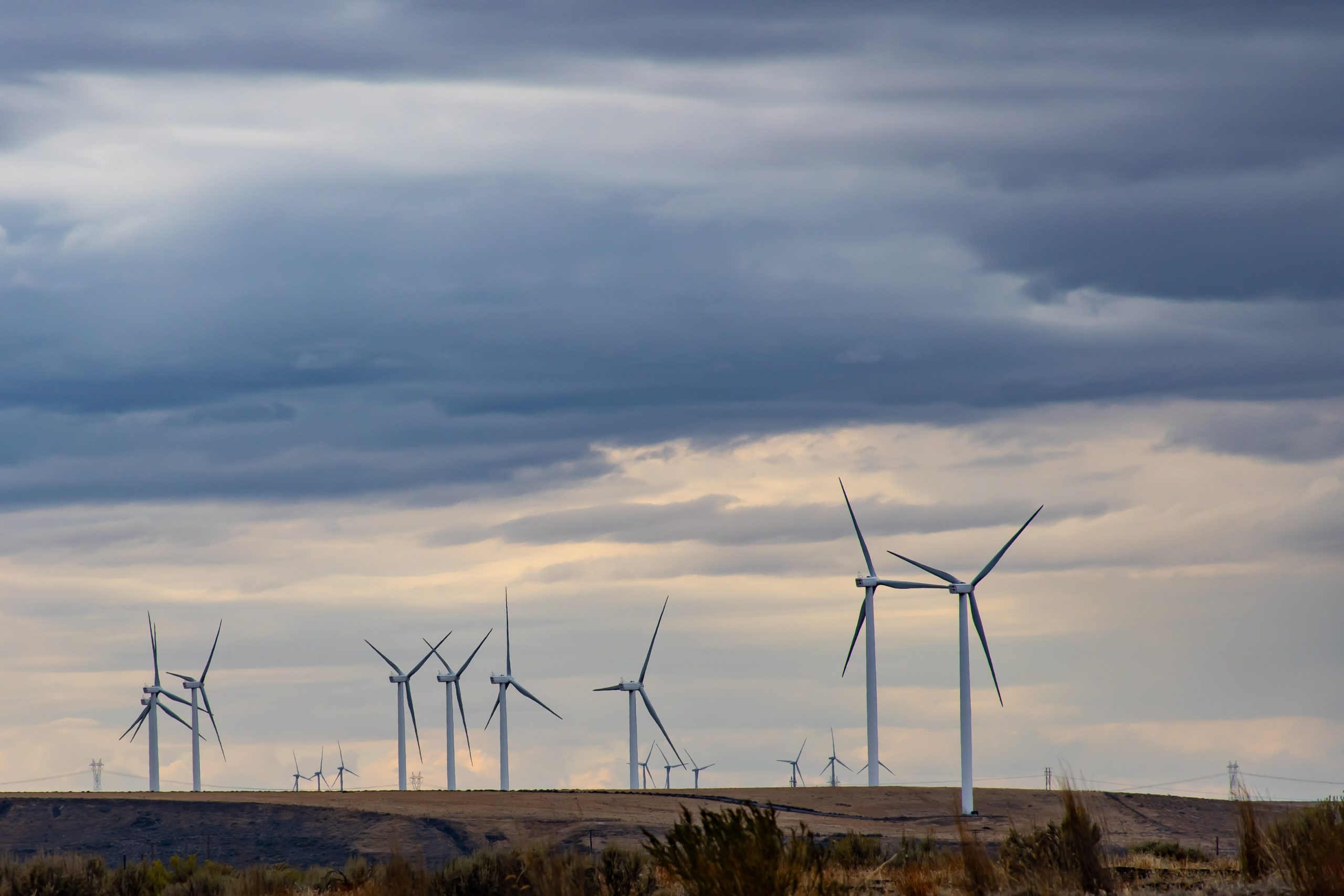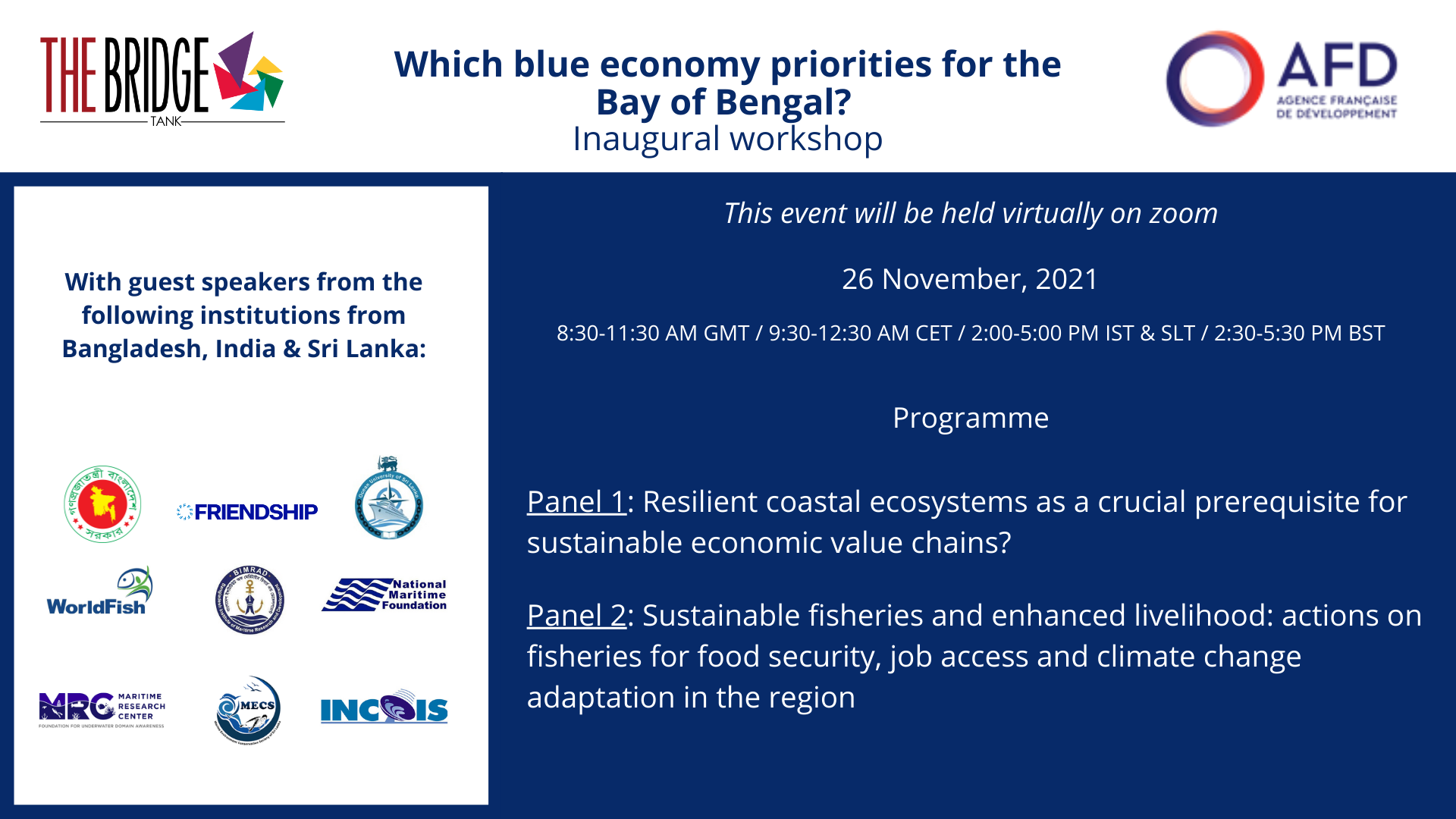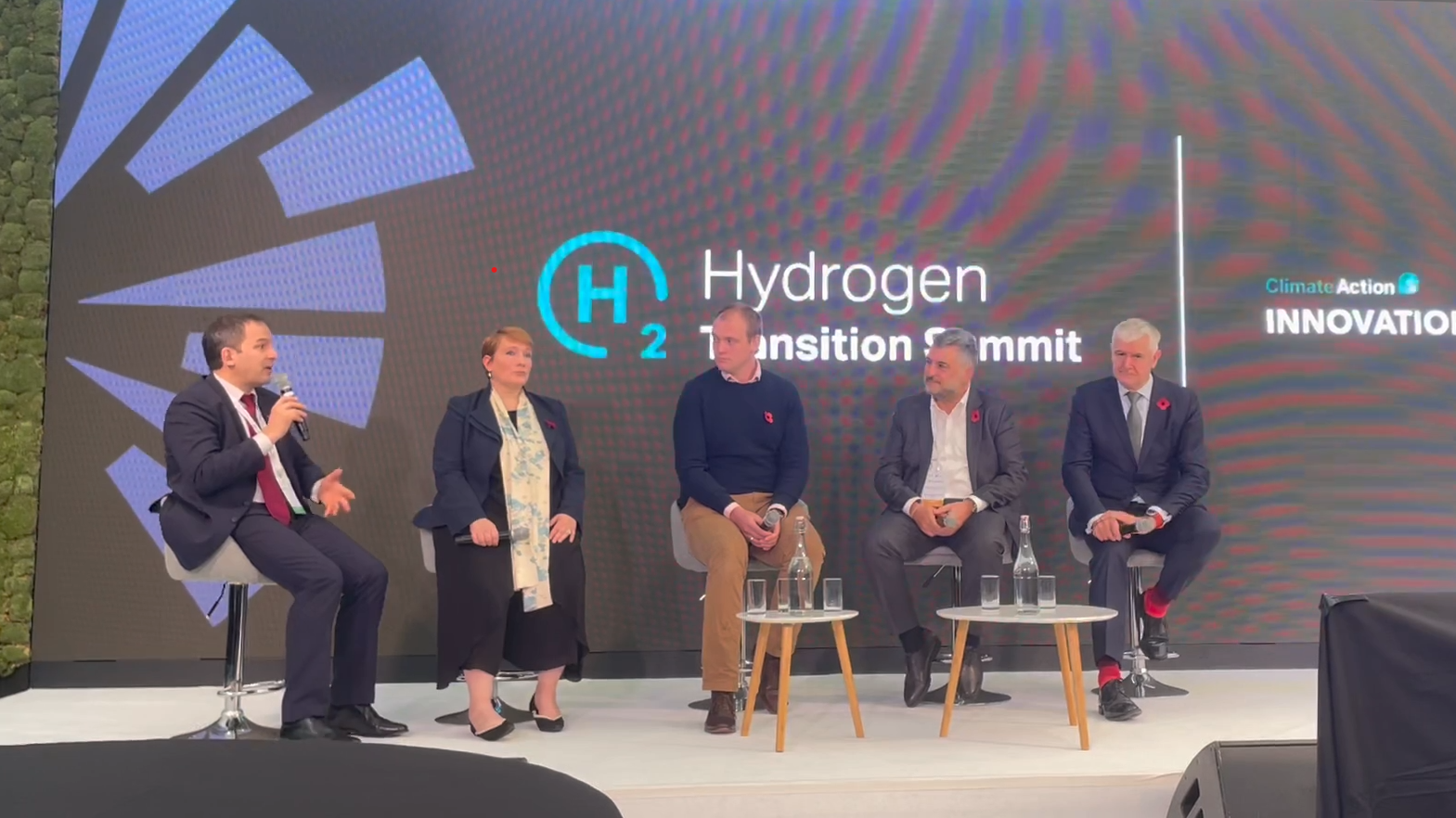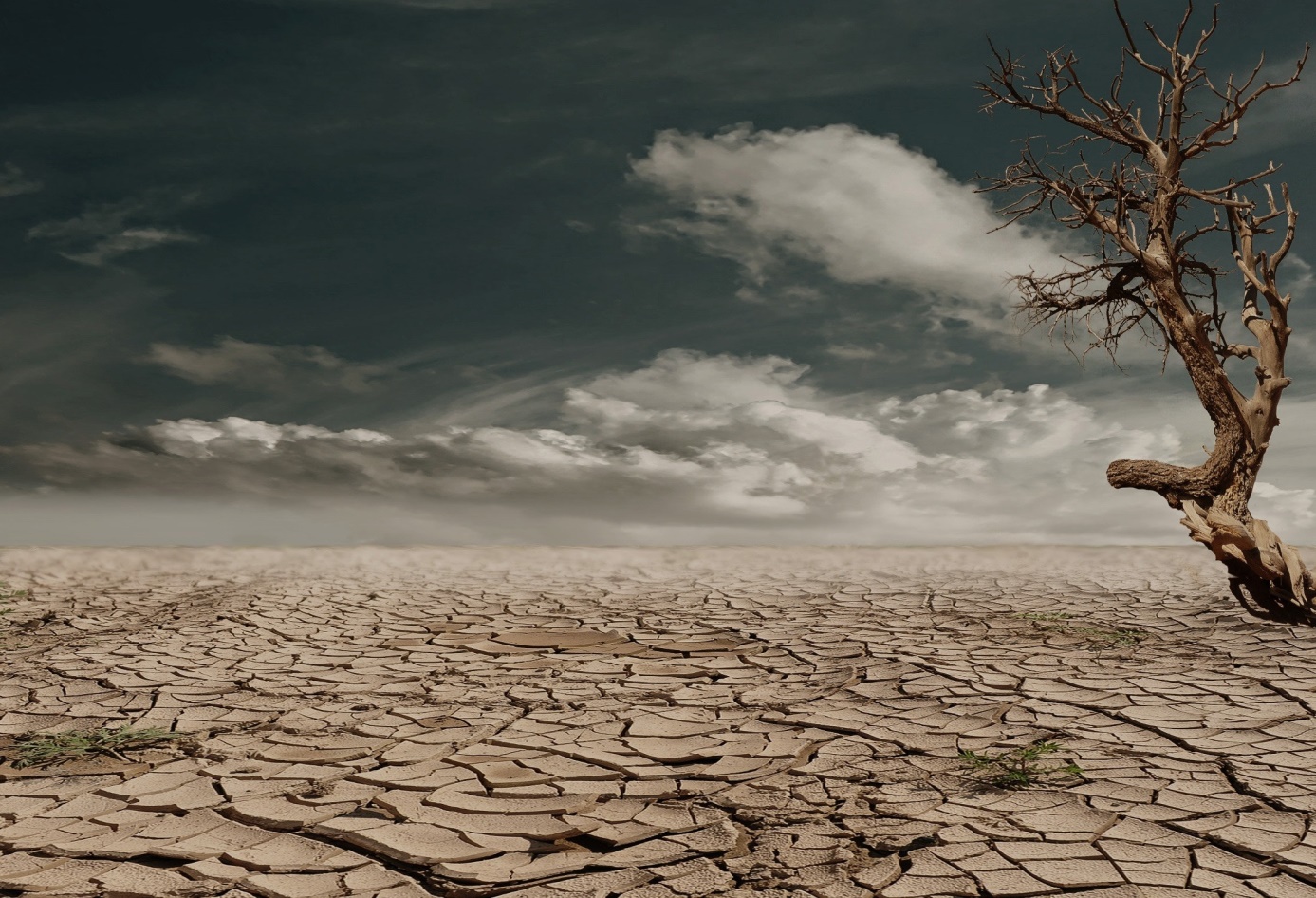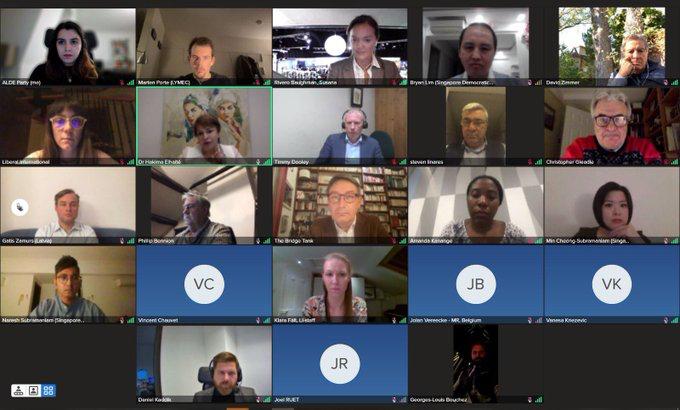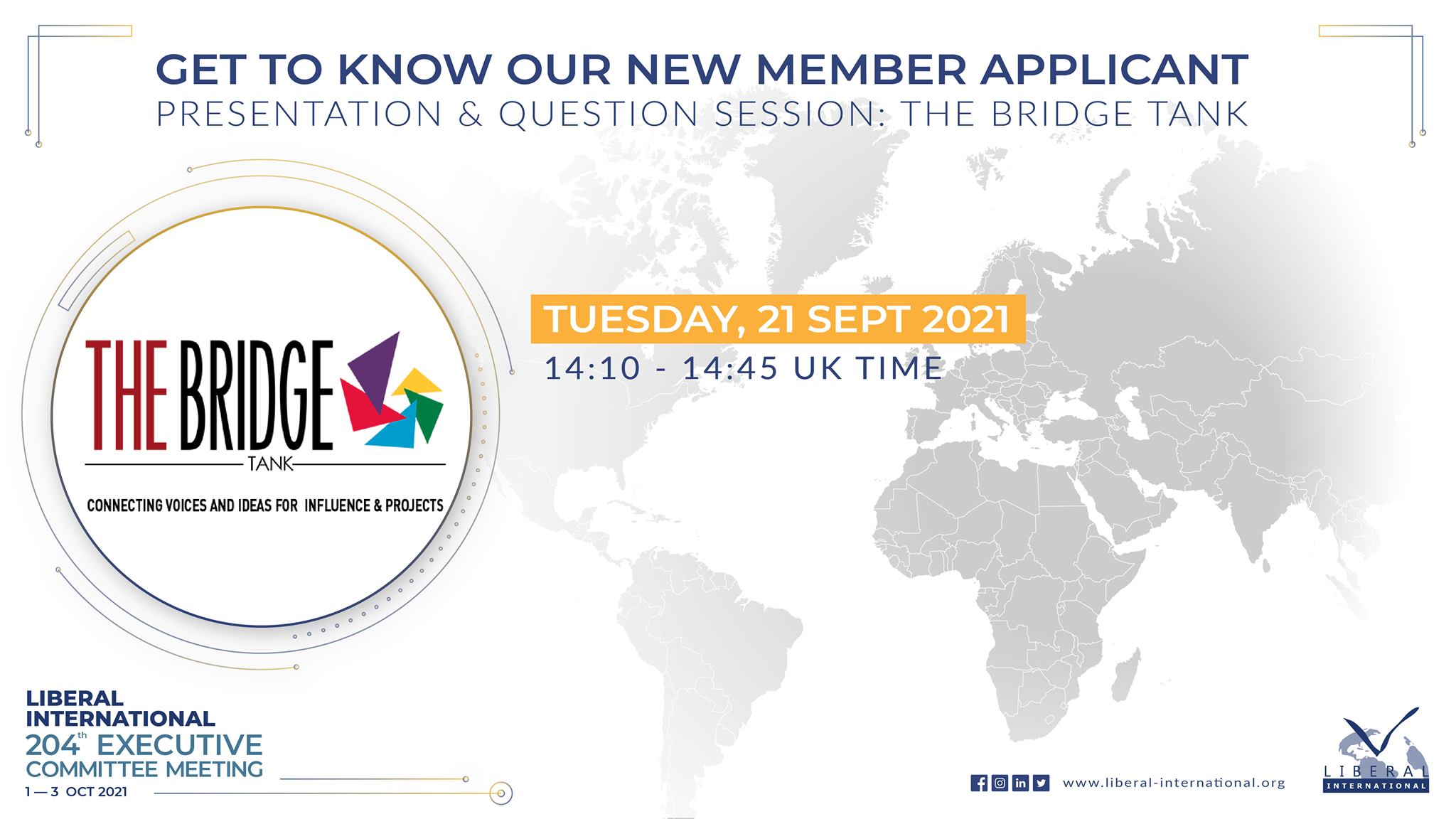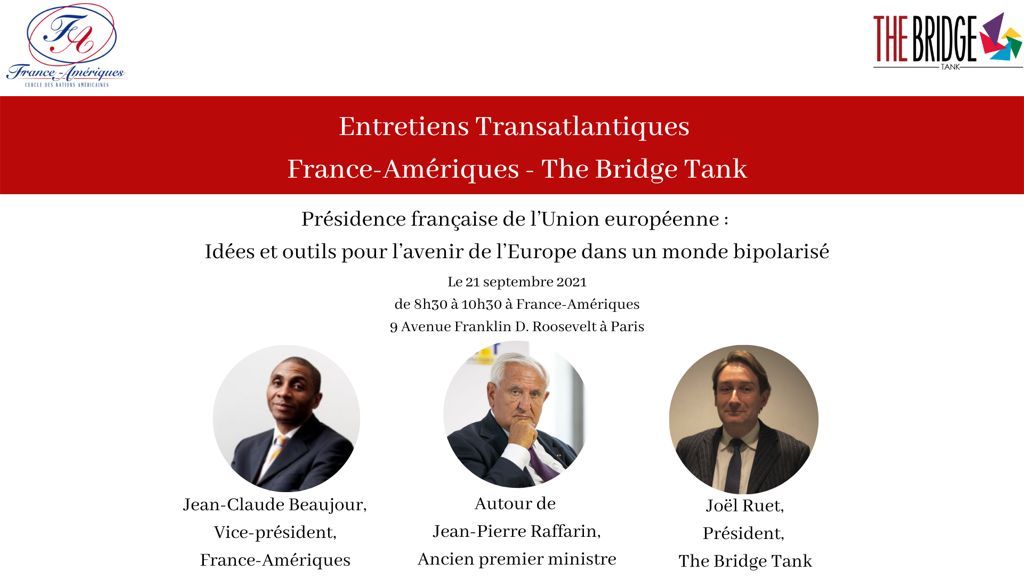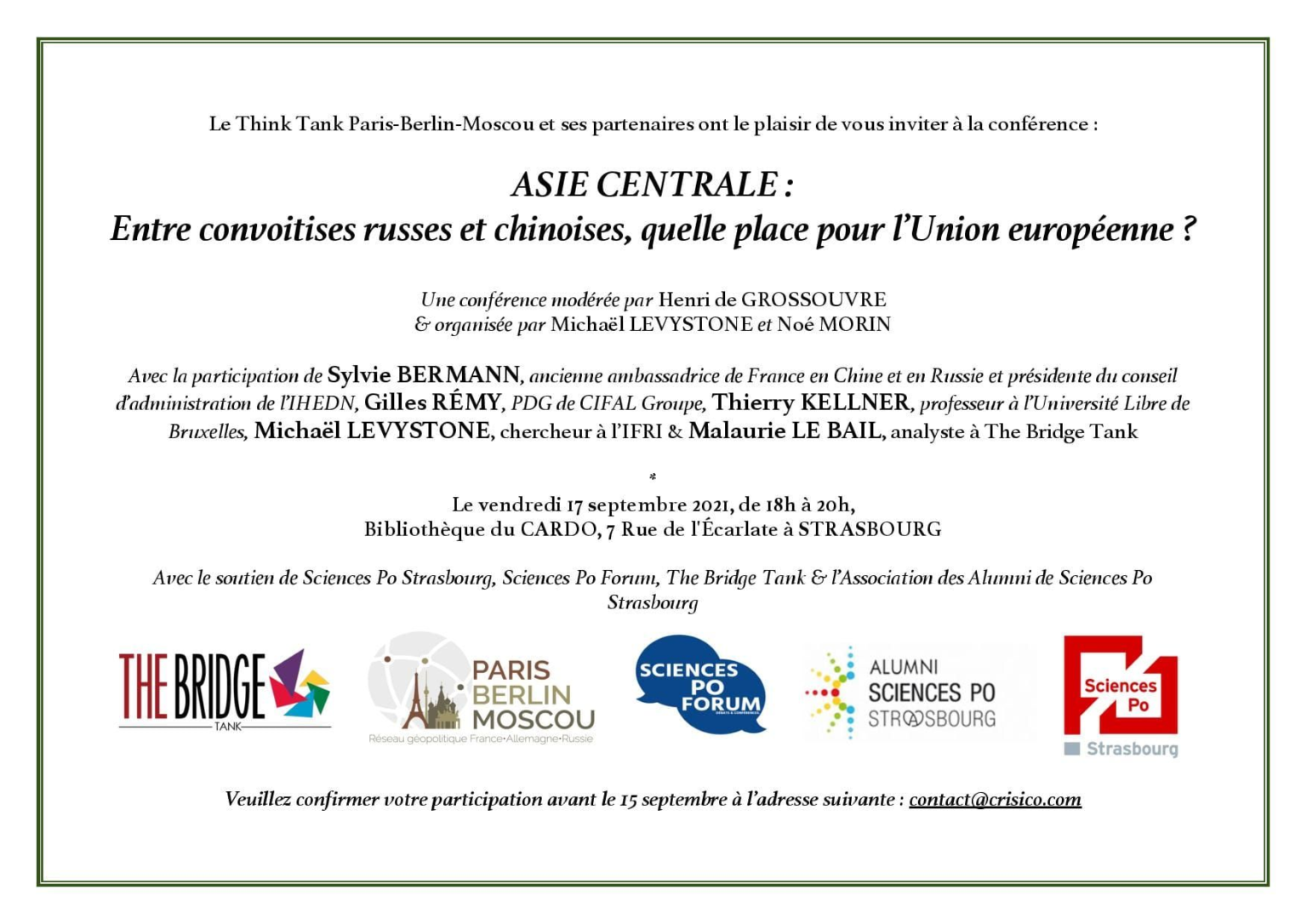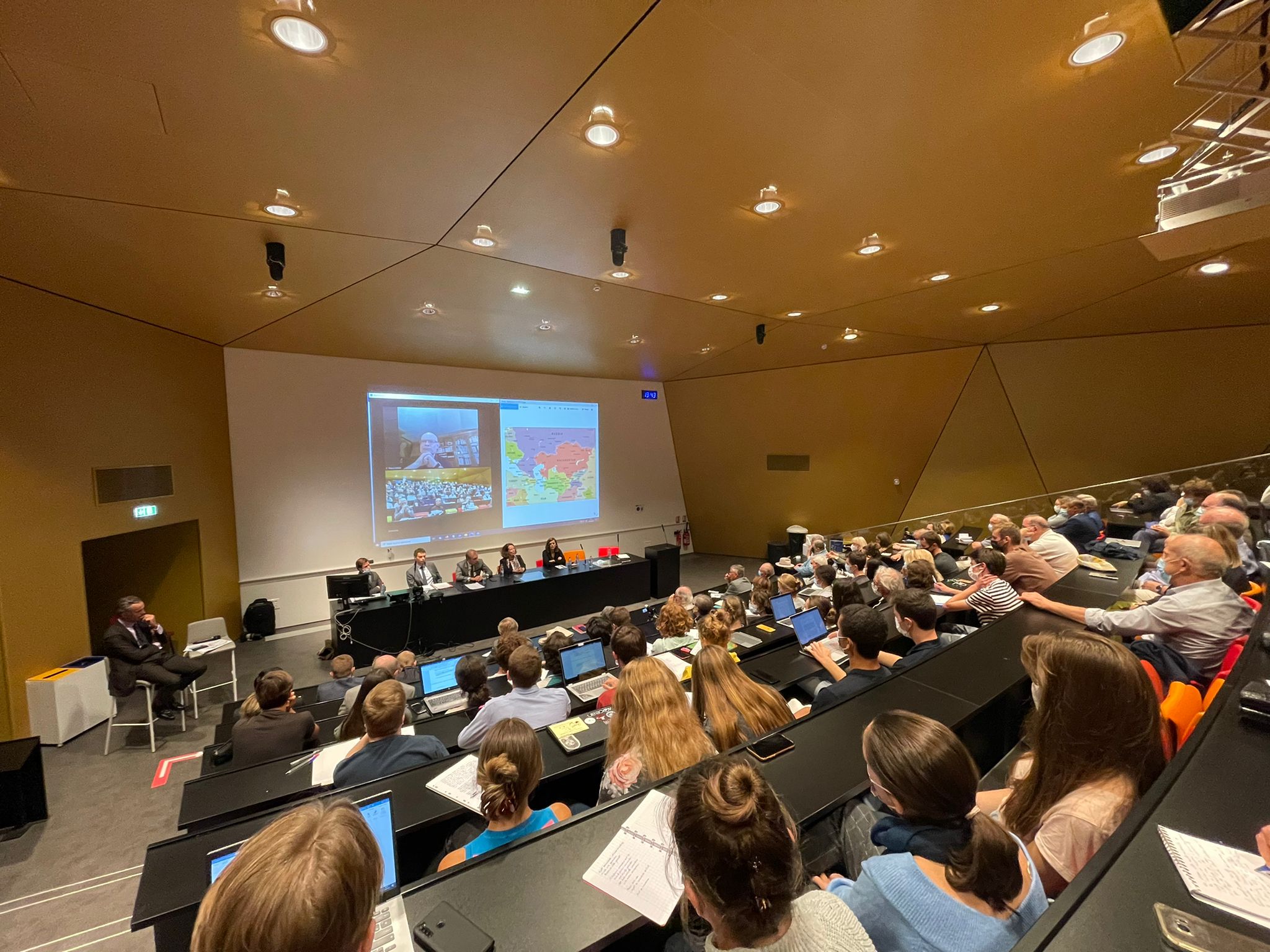The Bridge Tank and the French Development Agency launched a joint seminar series on blue economy in the Bay of Bengal (Bangladesh, India, Sri Lanka)
The Bridge Tank and AFD are co-hosting three workshops to understand the way in which Bangladesh, India and Sri Lanka organize their blue economy strategies, adapt to the physical impacts of climate change of the fishery resource and to identify the priorities, the opportunities and the needs for action. Along with the research and operational departments of the French Development Agency (AFD), we engage with marine, coastal and fisheries resource management bodies and influential national or regional think tanks.
On November 26th 2021, the online inaugural workshop gathered strategic thinking of the participants ahead of developing a growing interaction between them and institutes and policy makers in the following workshops, planned for January and February 2022.
This first workshop aimed at earmarking new blue economy priorities for various actors and nations in the Bay of Bengal, bringing shared understandings and diagnostics, identifying opportunities and needs in socio-economic projects. It aimed to identify the regional context and issues related to the blue economy, in particular the improvement of living standards of coastal communities and resource users through sustainable management of fisheries and integrated coastal management to adapt to climate change, through two panels.
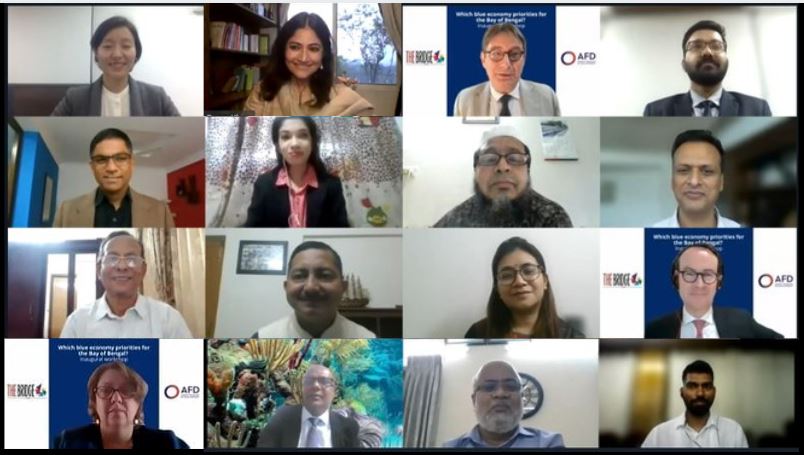
This virtual event brought together 12 speakers from 10 key organizations working on the blue economy in the region, gathering over 100 attendees.
Two panels shared speakers’ understanding of the different local issues related to the value chain of fisheries resources.
- Panel 1: “Resilient coastal ecosystems as a crucial prerequisite for sustainable economic value chains?”
Speakers:
Dr. Arnab Das, Director, Maritime Research Centre, India
Dr Srinivas Kumar, Director, Indian National Center for Ocean Information Services (INCOIS)
Ms Hasamini Sweenie Thilakarathne, Project coordinator and international affairs officer, Marine Environment Conservation Society of Sri Lanka (MECS), Sri Lanka Dr Chime Youdon & Dr Saurabh Thakur, Associate Fellows, National Maritime Foundation
Mr. Mashiur Rahaman, Joint Secretary, Ministry of Fisheries and Livestock
- Panel 2: “Sustainable fisheries and enhanced livelihood: actions on fisheries for food security, job access and climate change adaptation in the region”
Speakers:
Mrs Afifat Khanam Ritika, Research Officer, Bangladesh Institute of Maritime Research and Development (BIMRAD)
Mr Md. Abdul Wahab, EcoFish Team Leader, WorldFish, Bangladesh Wing
Mrs Runa Khan, Founder & Executive Director, Friendship NGO
Dr M.F.M. Fairoz, Dean, Faculty of Fisheries and Marine Sciences, Ocean University of Sri Lanka
Dr. Md. Sharif Uddin, Department of Fisheries, Bangladesh
To watch the workshop online, click here: Panel 1 & Panel 2
To read the minutes report, click here
Green Hydrogen prospects at COP 26
During COP26 in Glasgow, The Bridge Tank centred its contribution to the conference on the theme of green hydrogen and its potential as a decarbonised energy carrier. An active participant in COPs since COP22 and the Innovation Forum it helped organise, and the only think tank invited to the launch of the Hydrogen Council in Davos in 2017, The Bridge Tank had defined hydrogen as one of the key issues for COP26/COP15 in the run-up to the summit through a special report.
Represented by its chairman Joel Ruet and our board member Raphael Schoentgen, Founder & CEO of Hydrogen Advisors, The Bridge Tank gathered insights and shared its expertise on hydrogen through two sessions on the subject. On 11 November, The Bridge Tank took part in the Hydrogen Transition Summit, which brought together hydrogen experts from around the world to discuss the role this molecule will play in the transition to a net-zero future. Raphael Schoentgen, board member of The Bridge Tank, was one of the speakers at the summit.
Michael Matheson, Cabinet Secretary for Net Zero, Energy and Transport of Scotland inaugurated the Hydrogen Transition Summit by underpinning the role of bilateral city-region partnerships to accelerate the setting up of hydrogen supply chains.
In several regions of the world, the economic and technological conditions to scale up hydrogen are already in place, Raphael Schoentgen argued, adding that public support for hydrogen is now strong. While the carbon price matters, knowing who the financial off takers will be and having finance in equity are two key drives to scale up, he added.
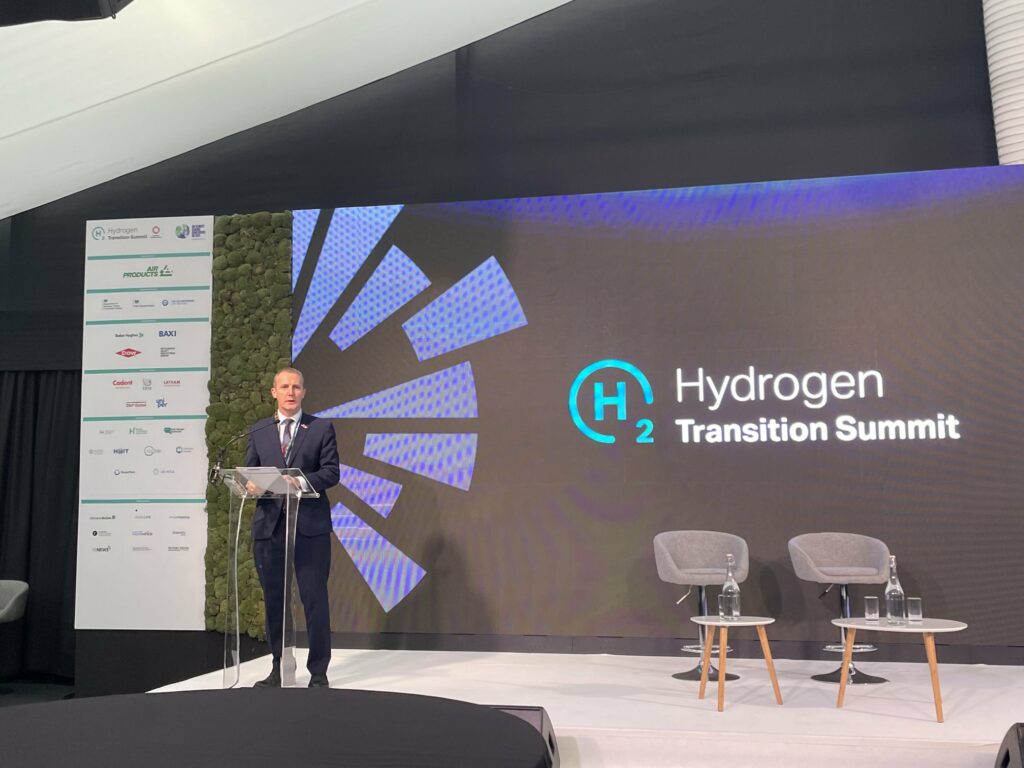

Green Hydrogen Application
One day earlier, on 10 November 2021, UNIDO and the Austrian Ministry of Climate Action organised a side event on “Green Hydrogen Application: Driving growth of renewable energy and advancing inclusive energy transition” at the SDG 7 Pavilion. The event gathered:
- Stephan Sicars, Managing Director of the Directorate of Environment and Energy, UNIDO,
- Leonore Gewessler, Minister of Climate Action, Environment, Energy, Mobility, Innovation and Technology of Austria,
- Rolando Castro-Córdoba, Vice Minister of Energy and Environmental Quality of Costa Rica,
- Rebecca Maserumule, Chief Director: Hydrogen and Energy at the Department of Science and Innovation, South Africa,
- Ahmed Benlarabi from IRESEN (Institut de Recherche en Énergie Solaire et Énergies Nouvelles),
- Alicia Eastman from InterContinental Energy.
Minister Gewessler set a framework on increasing complementarities between electricity storage, long distance mobility, carbon pricing, and directing hydrogen in priority towards hard to abate sectors like steel. This particular use of green hydrogen has considerable potential in South Africa, Dr Maserumule noted, as it could help decarbonise the mining & chemical sectors but also public transportation in the context of the country’s revised Nationally Determined Contributions (NDC).
In Oman, the sun and wind in the desert could give rise to the production of green hydrogen and green ammonia, as well as producing water and fixing atmospheric carbon through the production of synthetic fuels.


Special Report – Moving ahead of COP26 & COP15: finance & coalitions for hydrogen & the blue economy
In the context of international negotiations on climate and biodiversity (COP26 and COP15), The Bridge Tank has developed analyses on global priority topics, these international conferences of which are considered as some of the most urgent.
This report aims to contribute to the global and diplomatic discussion on climate change and biodiversity challenges. Through deep academic and scientific review, we designed method, foresight, and recommended solutions, divided into 4 chapters. The first two chapters put forward positions, structuring and global elements on adaptation, finance and governance while forcing action at different scales. The second two chapters develop scientific, industrial and technical theories on operational subjects.
The first chapter addresses the ADAPTATION FINANCE mechanisms with a specific focus on blended finance as an efficient tool to finance emerging economies. Our analyses allow us to identify various tools for scaling up climate action.
The second chapter deals with the innovative approach of COALITION into the climate change negotiations toward bottom up and regional coalition by involving non state-actors.
The third chapter focuses on the place HYDROGEN can take in the energy transition as an upcoming energy vector. It underlines the specific economic and political dynamics that characterize the hydrogen ecosystems and puts forward possible bottlenecks that could impede its effective scale up for industry uses in the coming years.
The last chapter explores the need to work towards a transition to a BLUE ECONOMY in coastal territories worldwide and more specifically in the Indo-Pacific. This chapter highlights the fact that the ocean industrialization needs to be limited and coastal ecosystem and blue economy value chain should be better integrated.
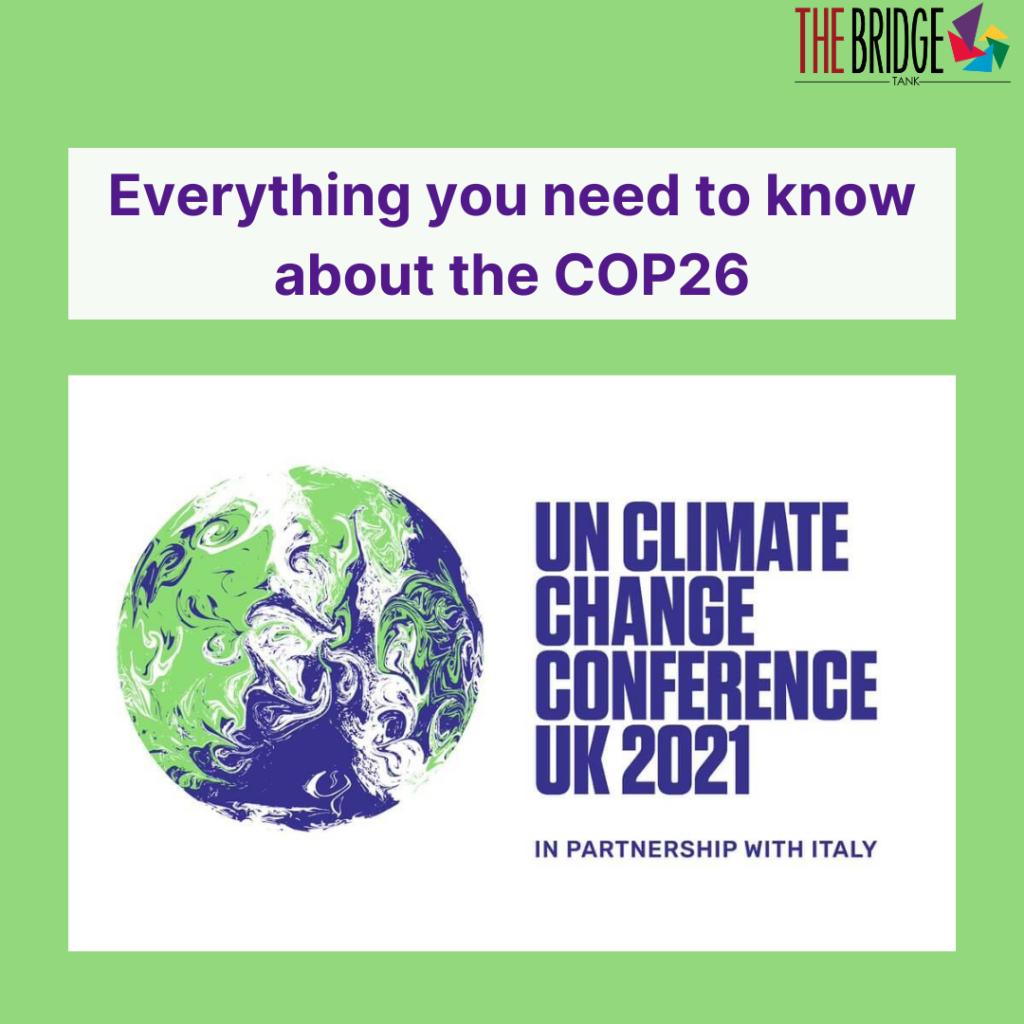
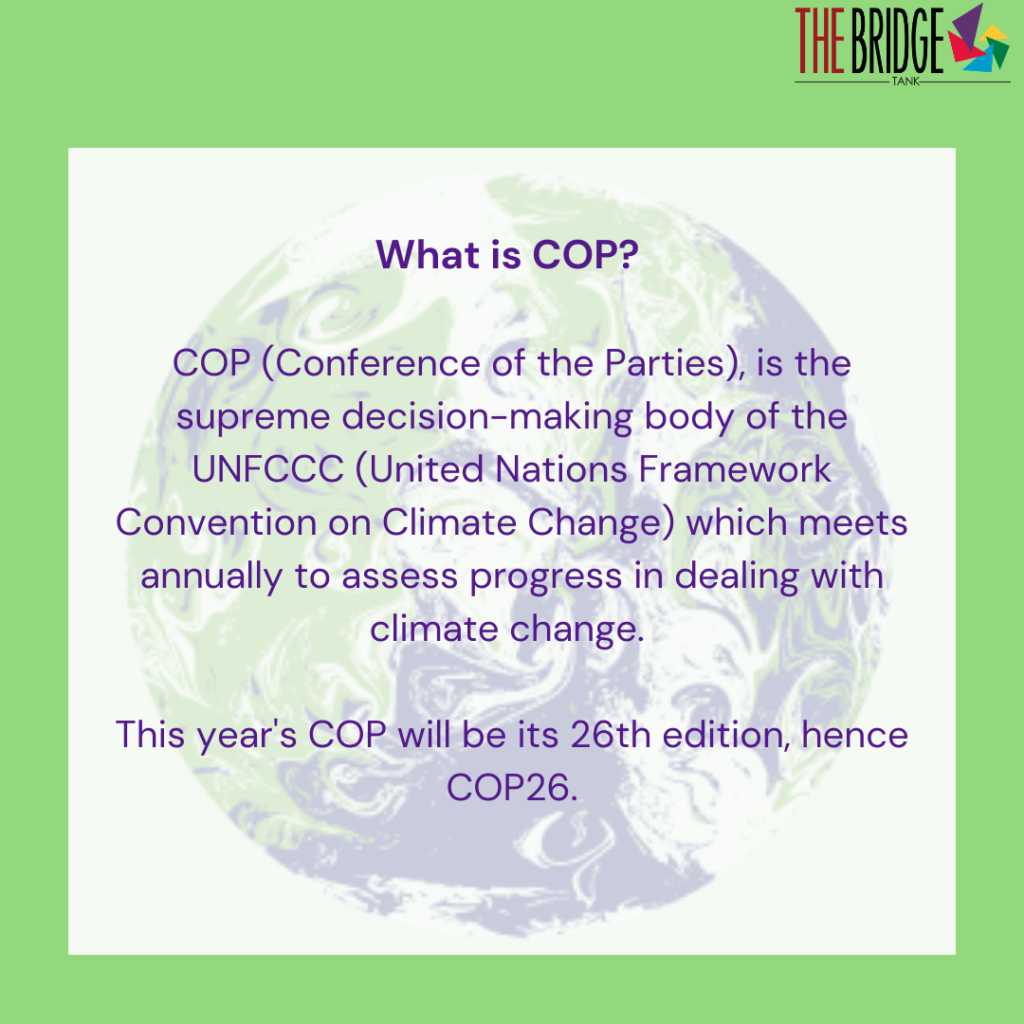
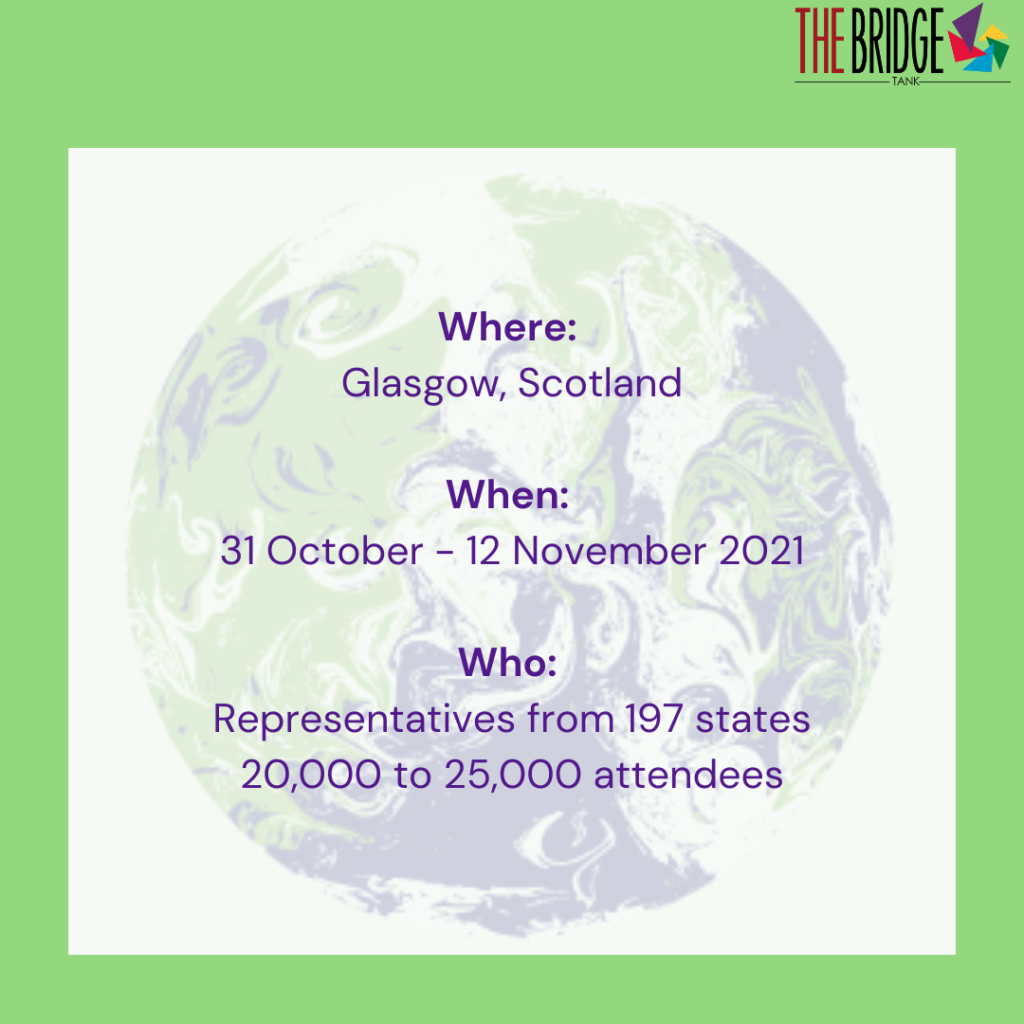
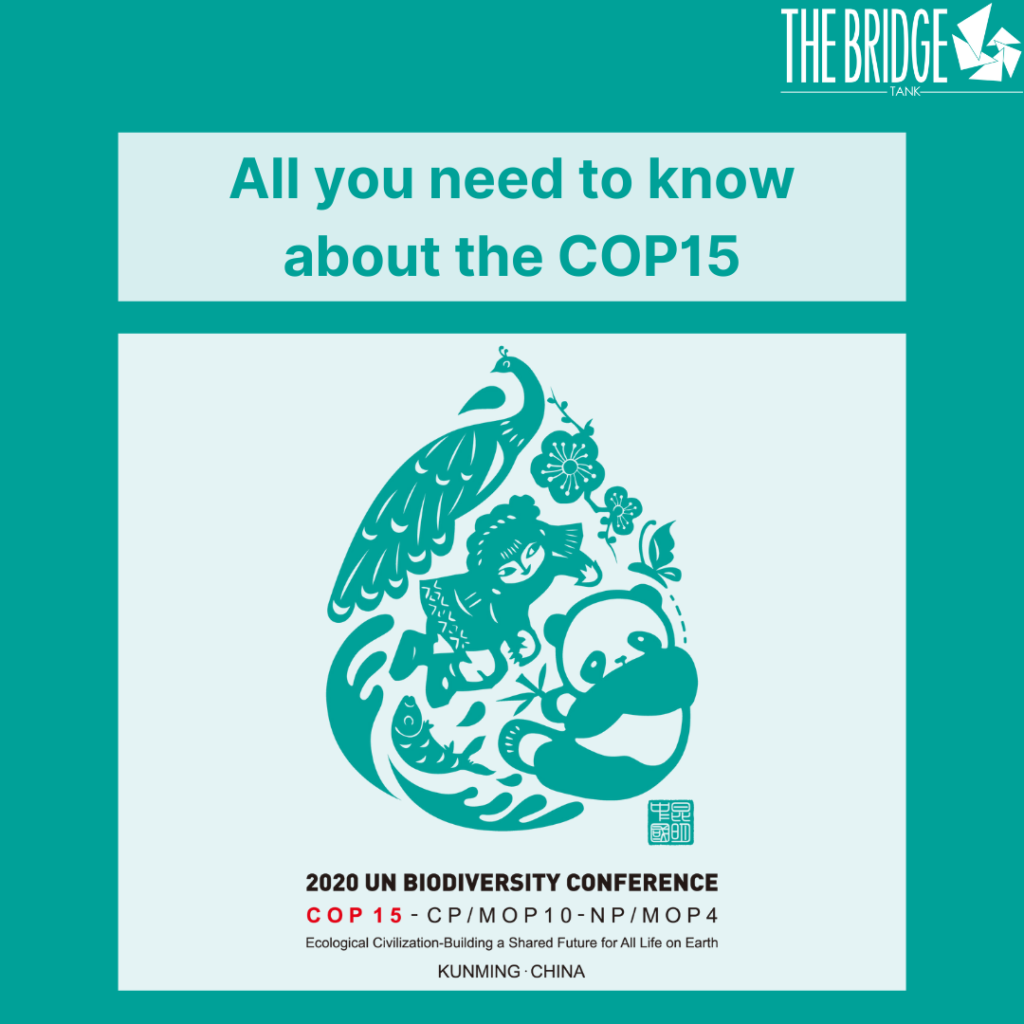
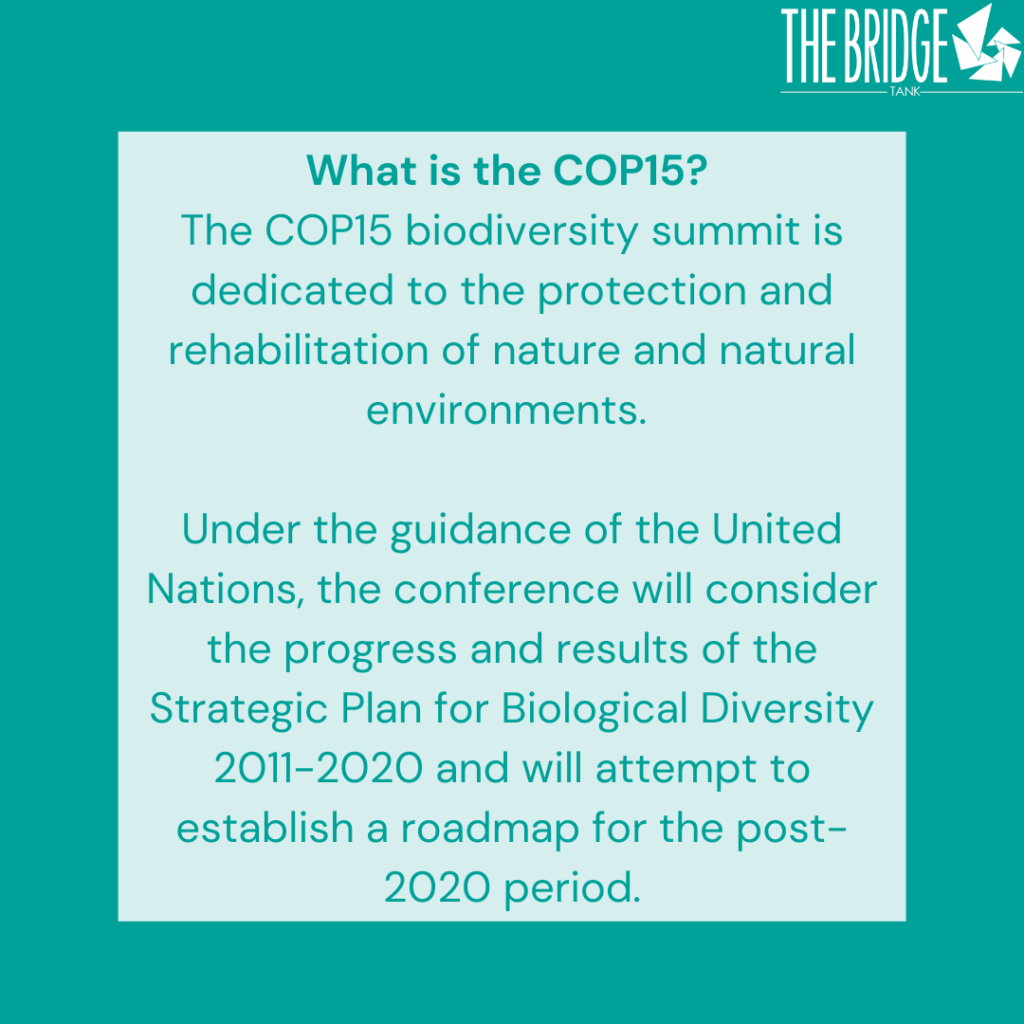
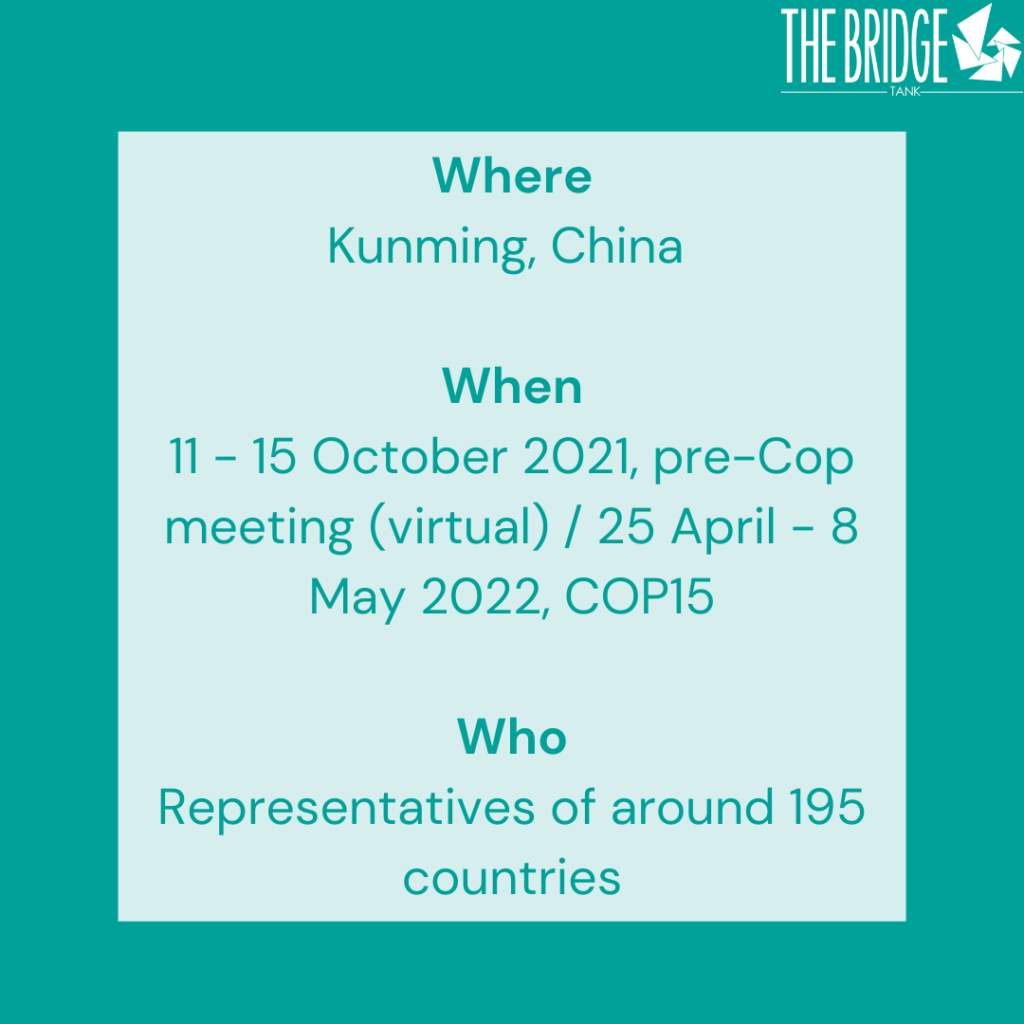
Edited by: Malaurie Le Bail and Joël Ruet
Contributors: Baudouin Becker, Clarisse Comte, Florian Dommergues and Malaurie Le Bail
Proofreading and graphic design: Jacqueline Duan
Read here our report: Final report_climate change and biodiversity_TBT_Nov21
COP26 Side Event – Liberal International’s Declaration for Climate
On 8 November 2021, The Bridge Tank, an Observing Member to Liberal International participated to an online roundtable event on the fringes of COP26, hosted by ALDE Party and Liberal International. Liberal policymakers and representatives from partner organizations congregated to share their views and exchange information on the ongoing United Nations Conference on Climate Change. The event was chaired by ALDE Party acting co-President Timmy Dooley and President of Liberal International Hakima El Haité.
The participants discussed the role of liberals when it comes to influencing the sustainability agenda in the next years, with a particular look at the first week of negotiations and an eye towards the second and final round of negotiations. Moreover, they also stressed the importance of the liberal voice, including younger generations, when it comes to building back better from the pandemic and generating jobs and growth as well as for the respect of rule of law across the globe.
At the end of the roundtable, the participants adopted a pledge calling on states to increase their climate ambitions. In this pledge, the participants called for stronger international cooperation to raise climate commitments and implement them, called on states to submit more ambitious NDCs, and urged for more technical and financial support to be granted to developing states to improve their capacity to take climate action.
“Protection of global biodiversity is also essential to combat environmental degradation and climate change. Our planet is currently facing its sixth mass extinction as a consequence of human activity, and it is disrupting ecosystems around the world, threatening our food production, and increasing risks of pandemics. We must take bold and rapid action now to change this, and therefore call on states to include biodiversity protection as a central part in their climate action plans.
The time for talk is now over – the only option left is action.”
Read the full pledge on Liberal International’s website.
Liberal International 204th Executive Committee Meeting Elects The Bridge Tank as an Observing Member to LI
The 204th executive committee meeting of Liberal International took place online from 1 – 3 October 2021, with 132 registered delegates from 45 countries and 6 regions of the world. The Bridge Tank was one of think tanks to be officially welcomed to the LI family, demonstrating the growing appeal of liberalism outside of its traditional strongholds.

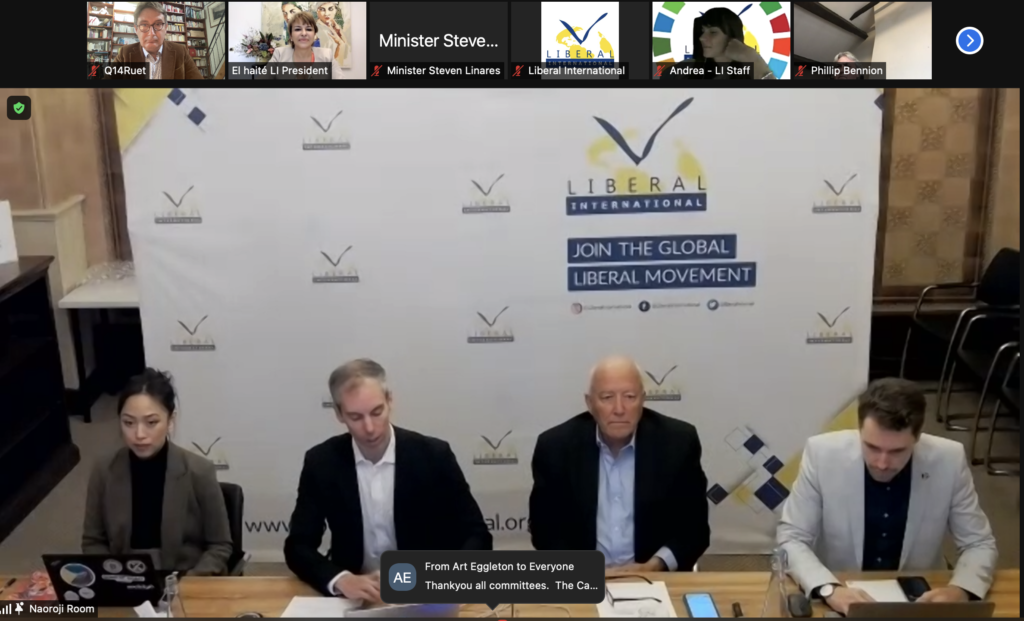
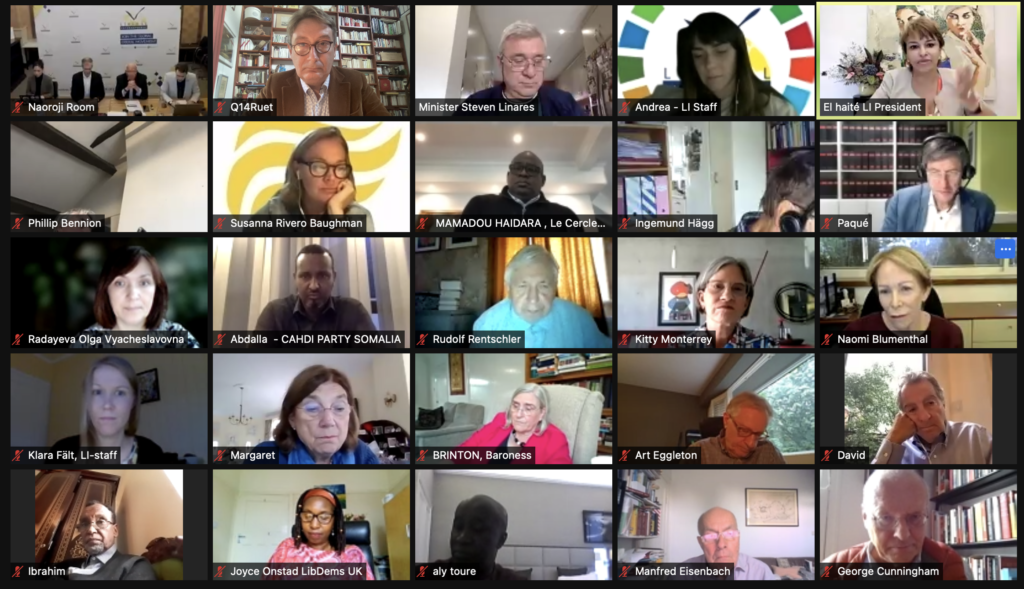
During this session, two policy papers were submitted by the LI climate justice committee and fair-trade working groups and eight urgency resolutions were adopted on urgent current global matters including the Covid-19 pandemic and climate change.
Read more about the 204th executive committee meeting on Liberal International’s website.
“Transatlantic Talks: Reflections for Europe with French Prime Minister Jean-Pierre Raffarin
On 21 September 2021, The Bridge Tank and the France-Amériques Circle inaugurated the “Transatlantic Talks”. The objective of these meetings is to bring together decision-makers around a personality in a closed format, and aim to feed into proposals ahead of the French Presidency of the European Union.
This first meeting gathered around Jean-Pierre Raffarin some fifteen political personalities, former ministers, parliamentarians, industrialists, senior civil servants and representatives of civil society.
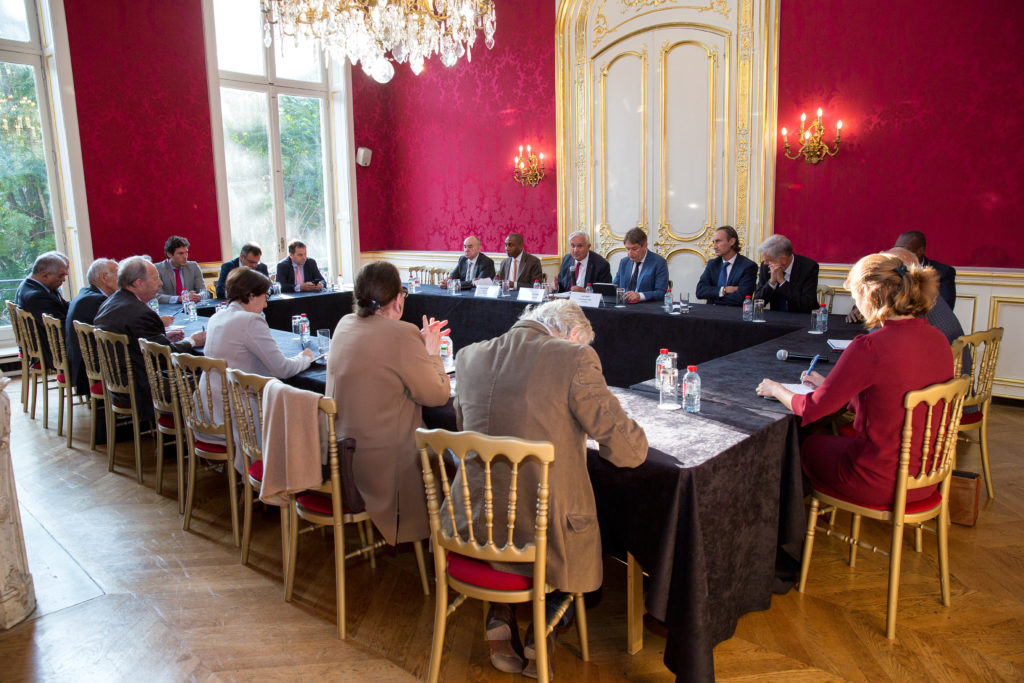
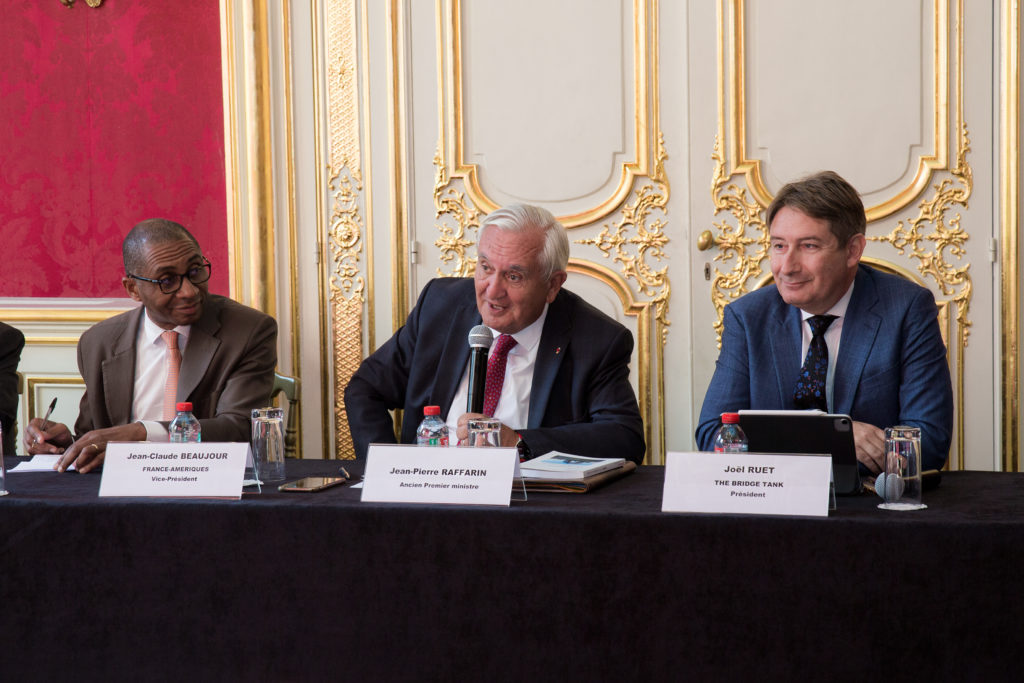
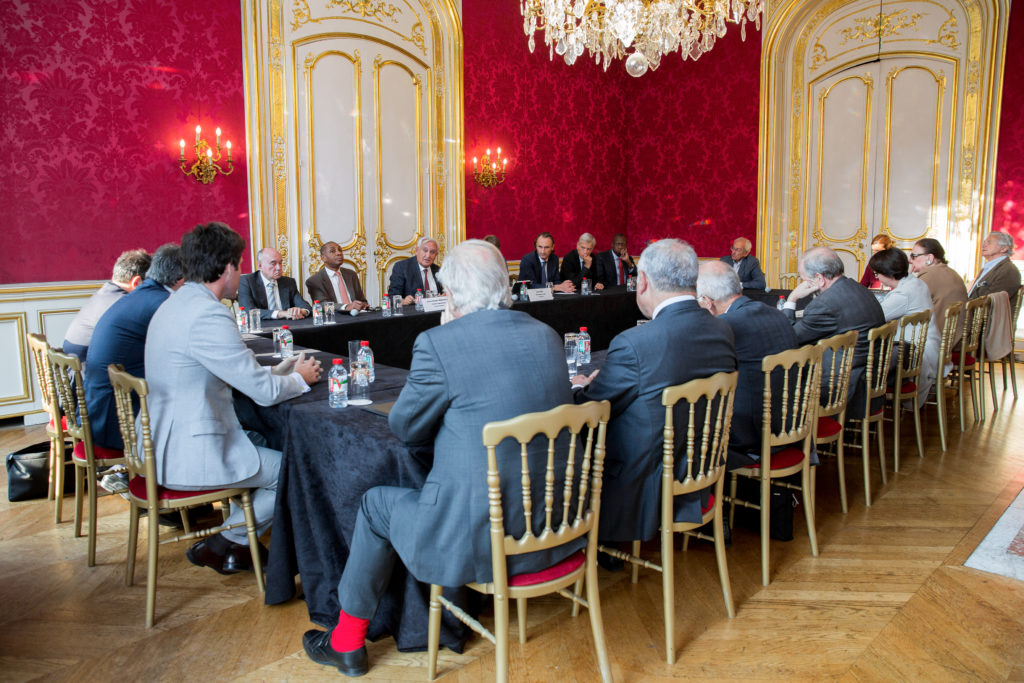
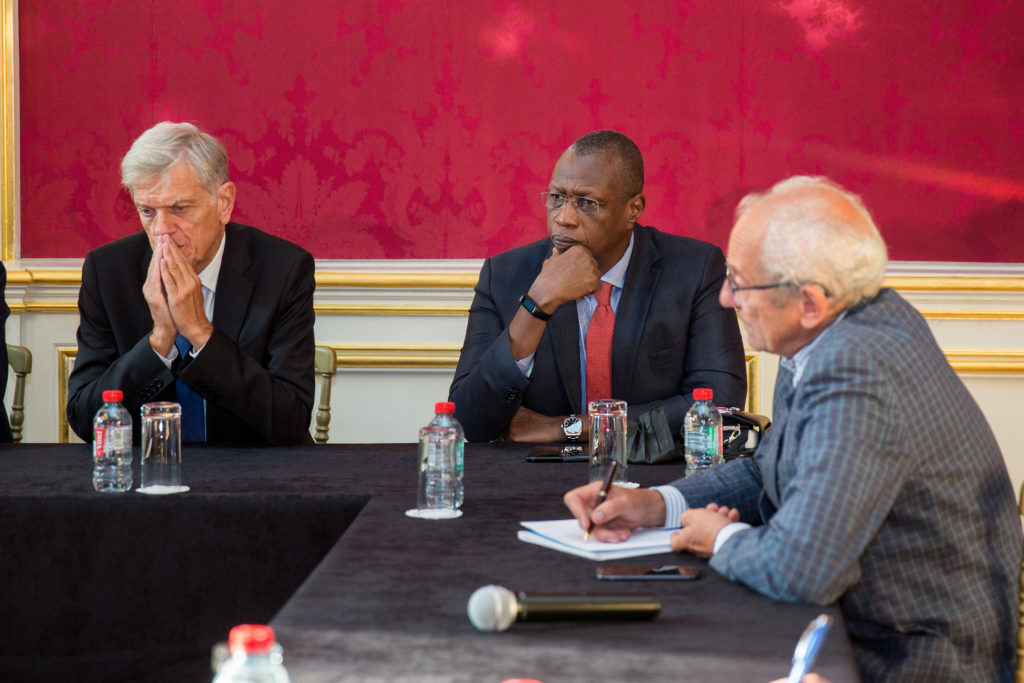
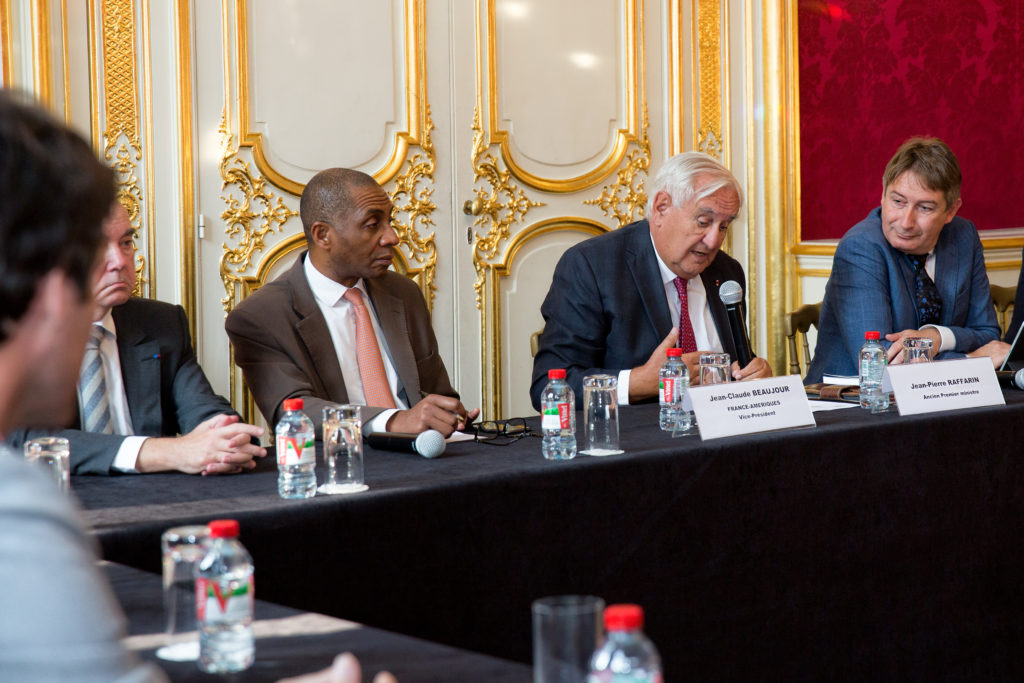
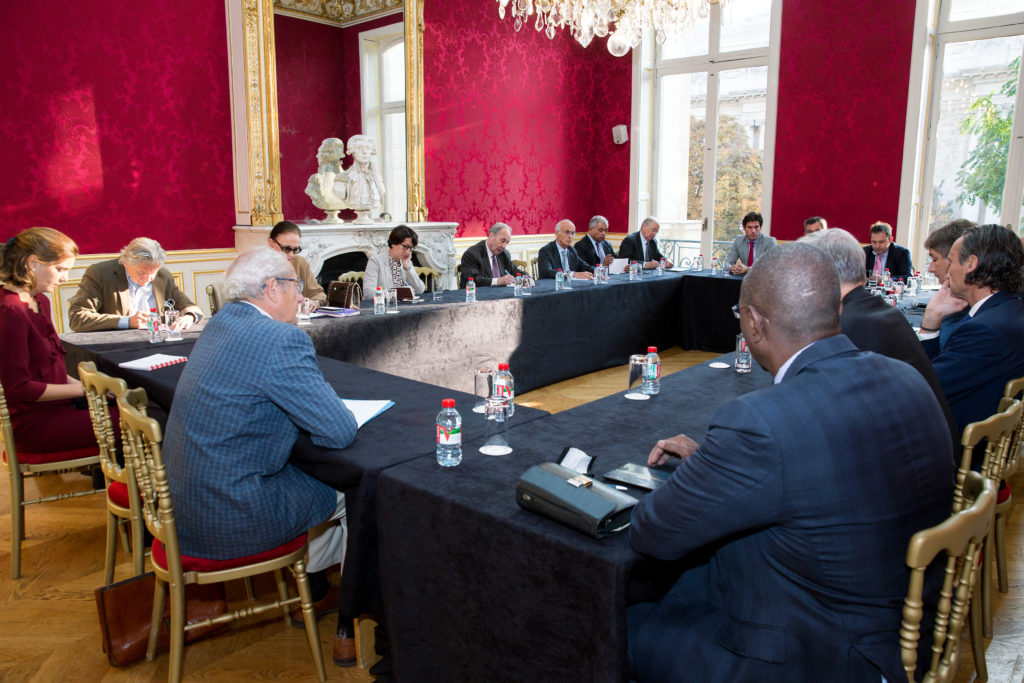
During this meeting following the “Chatham House Rule”, after several ideas launched by Mr Raffarin, the participants exchanged analyses and proposals on the following themes:
- EU-China-US relations and their growing role in various domestic policies
- Internal relations within the European Union
- The issue of European strategic autonomy, including data autonomy
- Multilateral cooperation and cooperation with Germany in Africa and democratisation in Africa
- The question of a European defence and its financing
- Energy and environmental issues in the face of ecological destruction
- The modernisation of democracies
- The risks of European deconstruction and solutions
The Bridge Tank and the France-Amériques Circle plan to organise a next session of the “Transatlantic Talks” around a new political figure.
Malaurie Le Bail, analyst at The Bridge Tank, speaks at the conference: “Between Russian and Chinese covetousness, what place for the European Union?”
The conference on Central Asia at Sciences Po Strasbourg, on 17 September 2021, “Between Russian and Chinese covetousness, what place for the European Union?”, was for The Bridge Tank the opportunity to recall that the land silk roads are first of all a vast operation to open up the provinces of Western China.
Malaurie Le Bail, analyst at The Bridge Tank, participated in this event moderated by Henri de Grossouvre and organised by Michaël Levystone and Noé Morin, in the presence of Sylvie BERMANN, former French ambassador and Gilles RÉMY, CEO of CIFAL Groupe, Thierry Kellner, Michaël Levystone, Henri de Grossouvre and Noé Morin.
Watch her intervention on our youtube (in French).
Read our article on the conference here.
The Bridge Tank co-organises the conference “Central Asia: between Russian and Chinese covetousness, what place for the European Union? “
On 17 September, a conference on Central Asia “Between Russian and Chinese covetousness, what place for the European Union?” was held at Sciences Po Strasbourg with the support of The Bridge Tank, the Think Tank Paris-Berlin-Moscow, Sciences Po Forum and the Alumni Association of Sciences Po Strasbourg. The aim of this conference was to discuss Central Asia and more specifically to study the Russian, Chinese and European influences in the five Central Asian countries of the former USSR: Kazakhstan, Kyrgyzstan, Uzbekistan, Tajikistan and Turkmenistan, thanks to the expertise and experience of practitioners of international relations and the region.
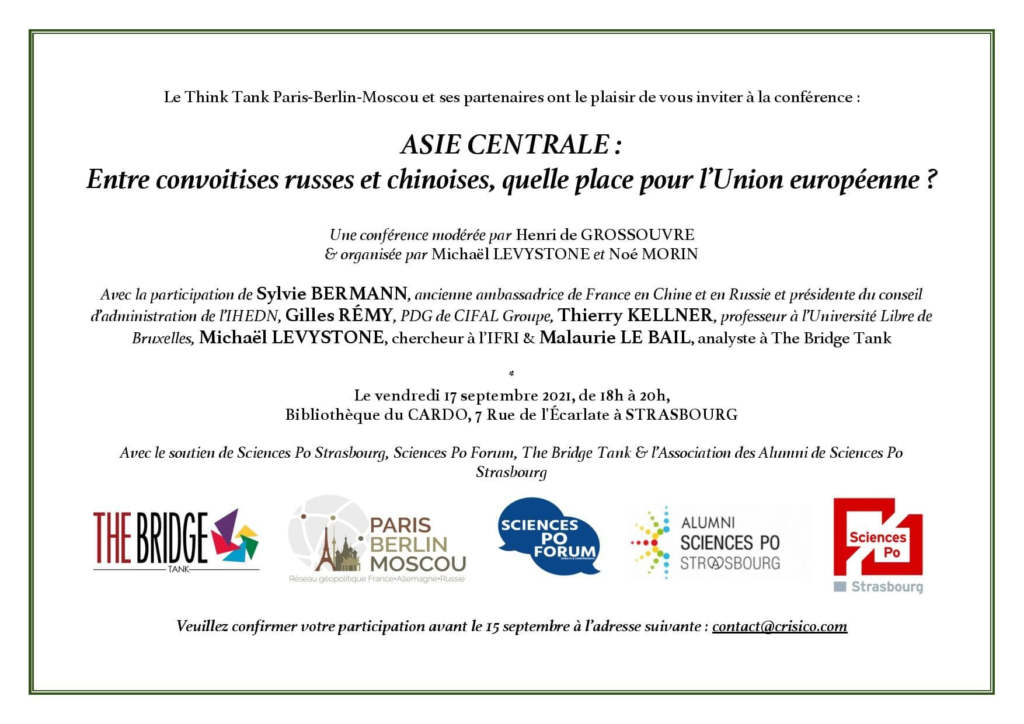
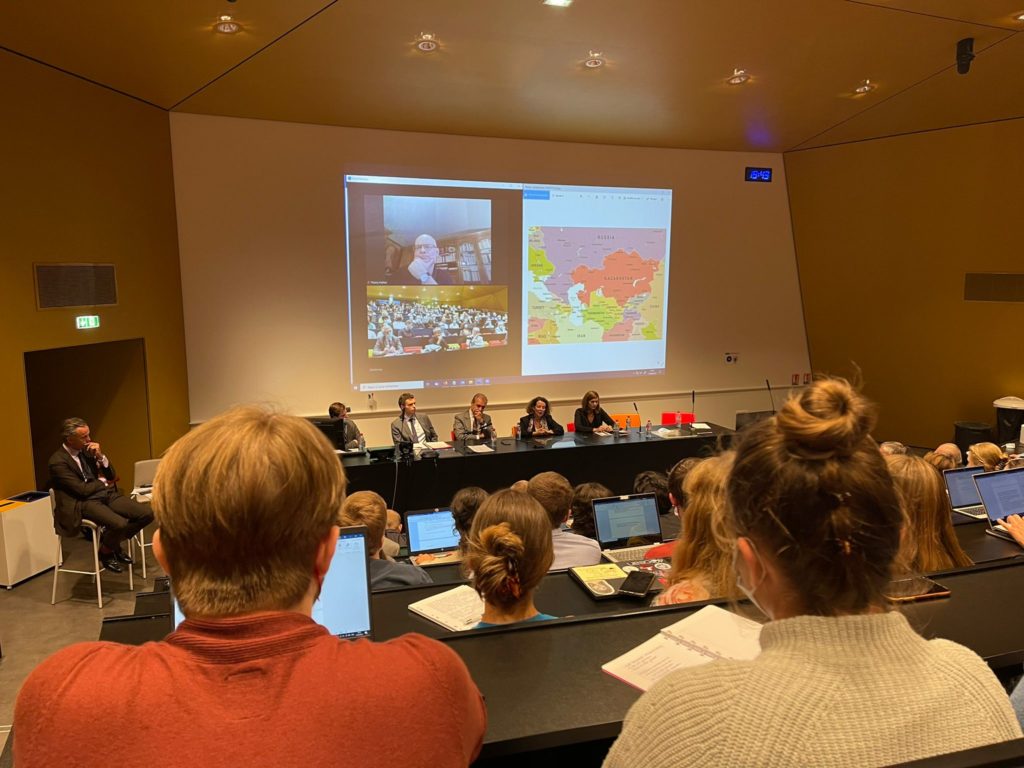
Among the speakers were Mrs Sylvie Bermann, former French Ambassador to China and Russia and President of the IHEDN Board of Directors, Mr Gilles Rémy, Director of the CIFAL Group, Mr Thierry Kellner, Professor at the Université Libre de Bruxelles and China specialist, Mr Michaël Levystone, Researcher at the Russia/NEI Centre of IFRI and Mrs Malaurie Le Bail from The Bridge Tank.
This event brought together around 150 people: Mr Ivan Soltanovsky, Ambassador, Permanent Representative to the Council of Europe, Mr Anuarbek Akhmetov, Consul General of the Republic of Kazakhstan in Strasbourg, Mr François Loos, Former French Minister, Mr Pierre Andrieu, Former French Ambassador, various experts who have worked in the region and many students.
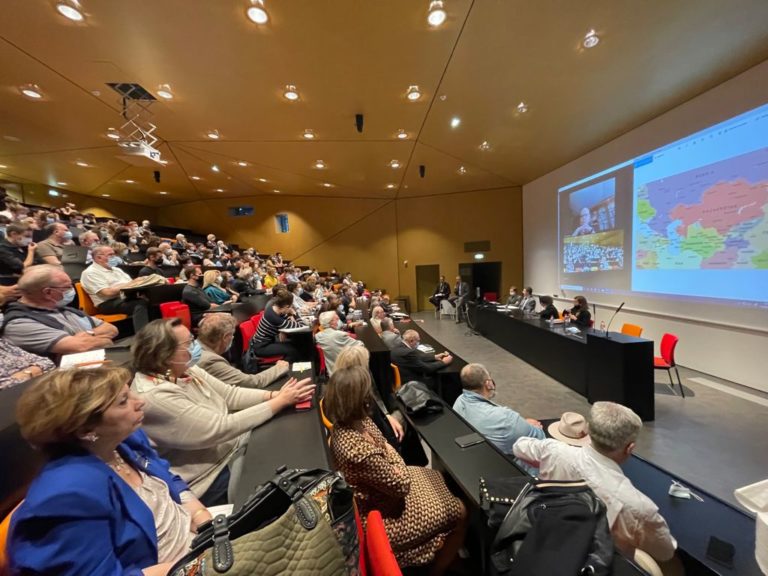
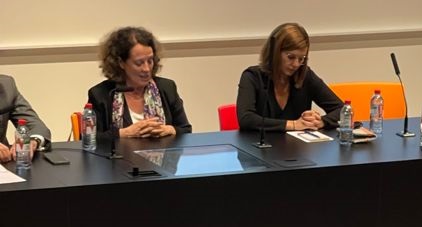
The Bridge Tank, co-organiser of the event, was represented by analyst Malaurie Le Bail. She deciphered the climate and environmental situation of the region through a scientific reading of the Intended Nationally Determined Contributions (IDNC) of Kazakhstan and Tajikistan a few weeks before the COP26. According to Malaurie Le Bail, many analyses, both in academic and institutional literature and in the media, highlight Kazakhstan’s climate leadership in the region. However, when comparing the INDC of Kazakhstan and Tajikistan, their greenhouse gas reduction targets are almost identical. Her presentation put Kazakhstan’s leadership into perspective and highlighted the way in which the climate ambitions of states should be studied according to the notion of “differentiated common responsibilities”. Malaurie Le Bail suggested two recommendations:
- The development of a tool to measure the degree of ambition of a State and to compare the climate ambitions of States with different and/or equal contexts.
- The importance of creating a Central Asian climate coalition during the climate negotiations to fight against common environmental problems, such as the lack of water irrigation or desertification.
Finally, Malaurie Le Bail concluded her intervention by presenting a vision of The Bridge Tank on new Silk Roads (BRI – Belt and Road Initiative). The BRI is a Chinese-Chinese solution to a Chinese-Chinese problem and responds to low domestic market demand and high exports of goods, which caused the accumulation of Chinese currency in the years 2000-2010. The BRIs are therefore not an initiative to promote investment but to develop Chinese loans abroad that generate trans-border economic activity. The idea for China, especially for Chinese companies, is to create infrastructure and activities abroad financed by debt to rebalance the domestic economic situation and to develop infrastructure in the western provinces of the country. The Bridge Tank argues for a reading of the BRIs from within China, rather than from simply a regional and global influence perspective. From a Central Asian perspective, the BRIs allow these countries to benefit from the infrastructure and technologies developed and used in this project, but also to integrate a global market and to be at the heart of a strong geopolitical system.
Sustainable Energy transition trajectories in large countries
By Baudouin Becker, Antoine Goutaland, Xieshu Wang, Joël Ruet, Laure Elise Wargnier and Malaurie Le Bail.
The ecological emergency has caused a sharp pressure on policy makers to concentrate their efforts on elaborating public policies to organize the passage from the existing fossil fuels based system, that is unsustainable, to another system, whose contours are unknown in details for the time being, but whose ambition is to be durable. Unlike previous energy transitions that were achieved through industrial investments, the decarbonization of national economies is directly led and orchestrated by public authorities through incentives, constraints and policies. The presented documents are methodologies that aim at assessing the ability of governments to coordinate key actors and systems in order to achieve their climate goals and to identify the structural characteristics of the countries’ ecosystems.
These studies identify trajectories, that we define as the coordination of variables that allow a system to remain balanced while being in motion. A systemic understanding of these trajectories is proposed, including both major responses of public policies to climate issues and the possible integration of the new technologies within the existing system, including an analysis of industrial systems and their capacity (or disability) to meet these challenges.
In order to understand energy transitions across sectors, we have developed a detailed and replicable methodology that fully integrates the role and potential impact of actors (political and industrial). This has enabled us to understand energy transitions in an original way, freeing us from siloed macroeconomic studies and overly specific energy studies that do not allow us to understand the energy stakes as a whole.
In the following documents, you will find this methodology applied to over 20 economies.
The full report : Energy trajectories in main markets
Specific focus : Energy trajectories in main markets

